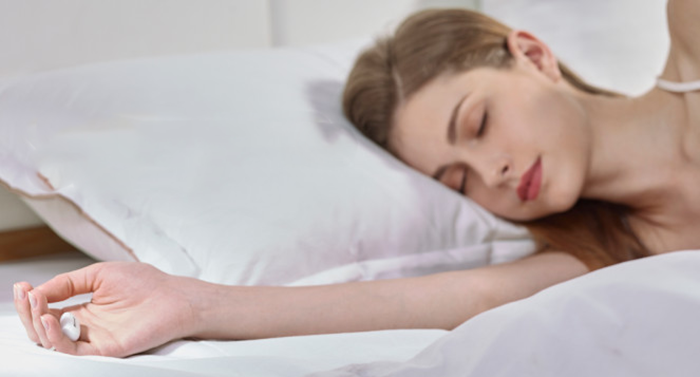Sleep apnea is a serious sleep disorder that occurs when an individual’s breathing is interrupted during sleep. People with untreated sleep apnea stop breathing repeatedly during their sleep, sometimes hundreds of times. This means the brain – and the rest of the body – may not get enough oxygen.
Snoring is a common condition which occurs when the flow of air through the mouth and nose gets obstructed. When the condition gets serious, it’s called Obstructive Sleep Apnea Syndrome (OSAS).
Sleep disorder, especially sleep apnea is the latest trend in wearable devices. Detecting sleep apnea has become an area of great interest for many companies with numerous devices on the market. At the IFA 2018 in Berlin, sleep trackers took the center stage.
A new start-up called SleepOn has launched Go2Sleep, a unique wearable ring that promises to monitor a range of sleep data and detect sleep apnea with comparable accuracy to other sleep monitoring devices on the market.
The Go2Sleep Home Sleep Test is a revolutionary device on monitoring and improving your sleep quality. It increases comfort while maintaining almost the same detecting accuracy of a pulse oximeter, but with a lot more key information. The precise data gathered would then help generate a comprehensive sleep report, just for you, reports MedGadget.

The plentiful capillaries on your fingers helps Go2Sleep to provide significantly more accurate detection data compared to conventional wrist band devices.
When the device detects sleep apnea during your sleep, a vibration alerts you to increase the chance of you unconsciously changing your sleeping position, eliminating the probability of sleep apnea.
The device can monitor your heart rate, blood oxygen saturation levels, perfusion index, and the amount of movement during sleep, all just by monitoring the blood flow via the capillaries in the finger. The data is then interpreted via an artificial intelligence algorithm and provides the user with comprehensive sleep reports via an app or email.
Related Alphabet’s Verily Partners Up With ResMed to Study Sleep Apnea
These measurements are especially useful for people with sleep apnea as drastic changes of blood oxygen saturation signals the condition.
The device is magnetically charged in its cradle, and it needs only two hours to charge to be able to work for three full consecutive nights. There device has enough storage onboard to hold up to seven nights worth of sleep data.












